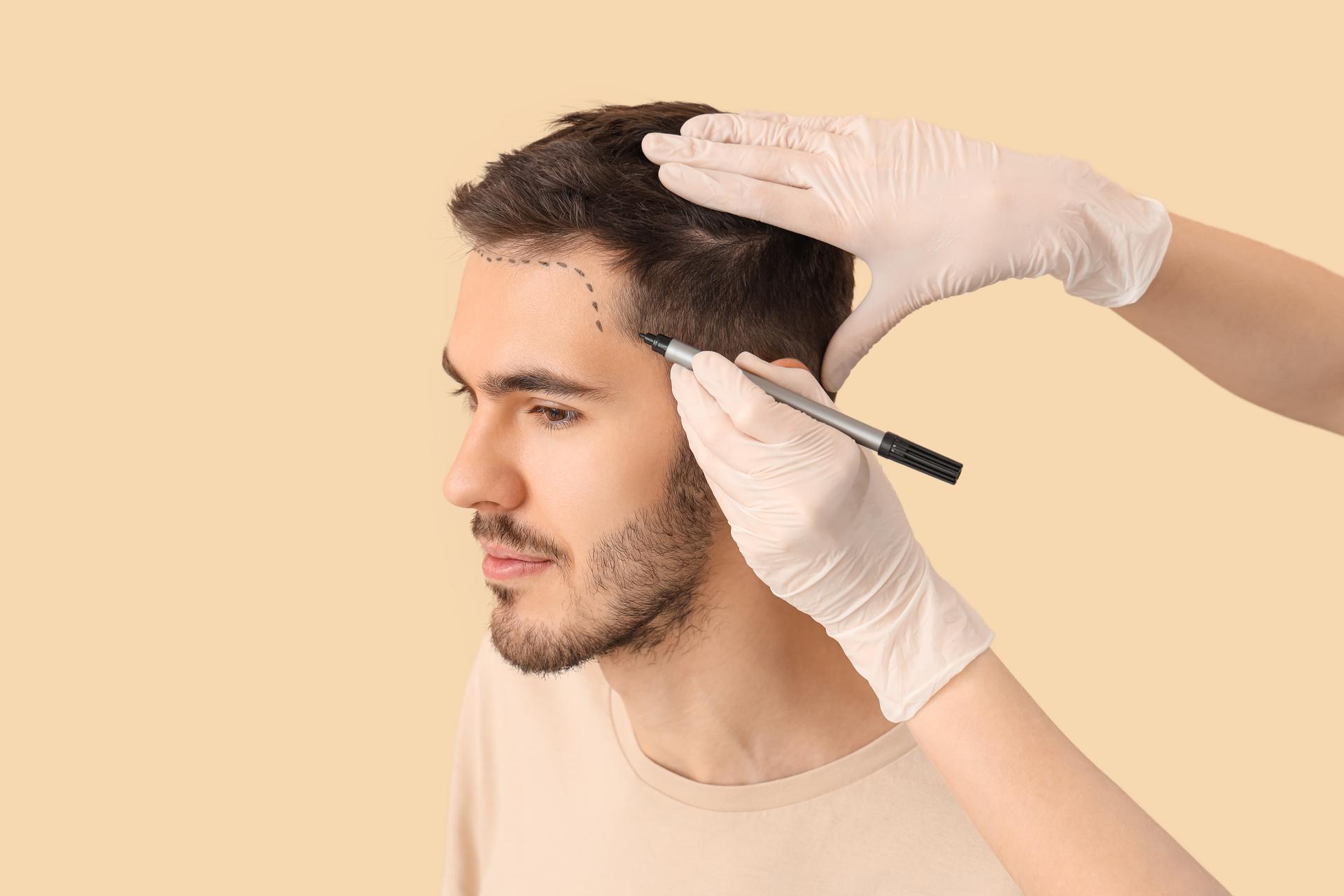Psoriasis is a widespread autoimmune disease that causes dry, scaly patches on the skin, commonly around the elbows, knees, feet, hands, and scalp. When it affects your scalp, usually raised, scaly patches appear, potentially leading to hair loss. This article discusses how scalp psoriasis impacts hair loss and how to manage it.
What Is Scalp Psoriasis?
Scalp psoriasis is simply psoriasis that is located on the scalp. If you want to reduce your chance of psoriasis-induced hair loss, it’s strongly advised to seek treatment as soon as possible.
Key symptoms of scalp psoriasis include:
- Scales and flakes that might initially resemble dandruff
- Discolored patches on the scalp
- Severe itching
- Dry, cracked, and bleeding scalp
- Burning, pain, or soreness on the scalp
Scalp Psoriasis and Hair Loss
Scalp psoriasis can indeed result in temporary hair loss. However, psoriasis is not a direct cause. Though your scalp may itch, your skin can become damaged if you scratch hard or remove those flakes forcefully, leading to hair loss. However, the lost hair usually regrows once the psoriasis symptoms disappear.
See Also: Can I Get Sick If I Sleep with Wet Hair?
Treating and Preventing Hair Loss
This section discusses the most common treatments for scalp psoriasis and associated hair loss.
1. Topical treatments
Applying topical treatments recommended by your doctor is beneficial for treating scalp psoriasis. These include vitamin D cream, medicated shampoos, and topical steroids to minimize inflammation and itching to the affected area
2. Over-the-counter treatments
Several over-the-counter (OTC) treatments can also alleviate scalp psoriasis symptoms. The active ingredients in these OTC options are mainly salicylic acid and wood or coal tar. Salicylic acid is useful in softening and removing existing plaques from the skin. In contrast, tar products reduce itching and slow down new skin cells’ growth.
3. Prescription treatments
Remember that psoriasis is a disease that affects your whole body. So, it may require prescription medication if the symptoms worsen. These medications can be taken either orally or as injections. These include retinoids, biologics, and more.
4. Light treatments
This was once the main treatment for psoriasis. However, with new medications to treat psoriasis, light treatment has lost its previous popularity. UVB light that is naturally present in sunlight can be useful in slowing down the growth of skin cells that are affected by psoriasis.
5. Steroids
Oral, topical, and injectable steroids are useful in reducing the severity and inflammation of psoriasis plaques. Your doctor or dermatologist will recommend steroids for your treatment depending upon the severity of the condition.
6. Oral medications
You may need prescribed oral medications if your scalp psoriasis is severe. Some examples of oral prescribed medications are apremilast, methotrexate, acitretin, and cyclosporine.
7. Injectable or infusion drugs
You can also have prescribed injectable treatments to lessen the psoriasis symptoms according to the severity of your condition. These might include biological treatments, which aim at the immune system and reduce inflammatory responses.
See Also: Is Green Tea Good for Your Hair Growth?
Lifestyle Changes
Some lifestyle changes and home remedies can also help people with scalp psoriasis reduce their symptoms and prevent flares.
Here are some essential steps you should do during an outbreak, according to the American Academy of Dermatologists:
- Go for medical advice as soon as you can.
- Try to avoid picking and scratching.
- Gently shampoo the affected area to avoid more irritation.
- Try to comb out and brush flakes and scales gently.
- Be sure to apply the treatment to the scalp, not the hair.
- Avoid blow-drying your hair. Let it dry naturally.
- Use different shampoos and a conditioner to prevent dry hair.
- Find out which shampoo works better for you to control the flare.
- Ask your dermatologist which shampoo is best for you if you are unsure.
If you have scalp psoriasis symptoms and are worried about the hair loss associated with it, get an appointment with New Jersey Hair Restoration Center, one of the best hair transplant clinics in Freehold, NJ. We are led by one of the top hair transplant doctors in Freehold, NJ, Dr. Emil Shakov. He specializes in various hair restoration procedures such as FUE hair transplant, FUT hair transplant, PRP therapy, and more.


